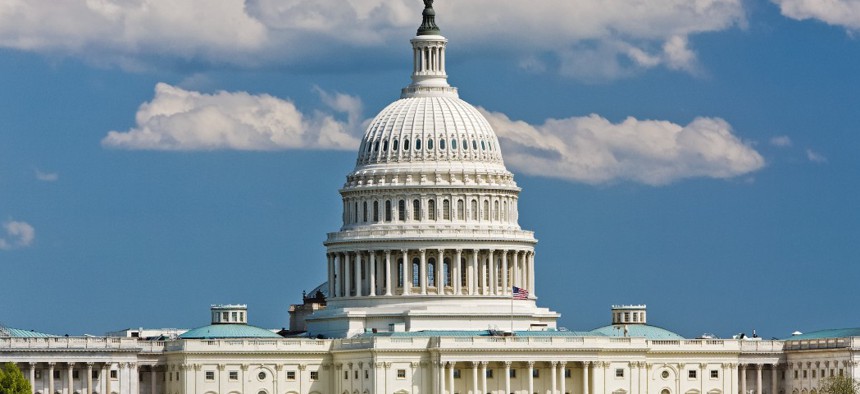EARN IT Act Reintroduced, Draws Criticism Over Encryption Implications

Rudy Sulgan/Getty Images
Sens. Graham and Rosenthal reintroduced 2020’s Eliminating Abusive and Rampant Neglect of Interactive Technologies Act, but advocacy groups fear it misses the target in restricting content.
The Eliminating Abusive and Rampant Neglect of Interactive Technologies, or EARN IT Act, was reintroduced into the U.S. Senate on Monday, reopening the potential for Congress to impose stricter penalties related to online content featuring child sex abuse material.
A key pillar of the proposed legislation is augmenting the provisions outlined in Section 230 of the Communications Decency Act, which protects online platforms from being liable for third party content hosted on their domains.
Should the EARN IT Act pass, it would limit the blanket protections established in Section 230 given to web hosts such as Facebook, Twitter, and YouTube, leaving them vulnerable to potential prosecution.
“There are tens of millions of photos and videos circulating throughout the internet, showing the most heinous acts of sexual abuse and torture of children,” said Sen. Lindsey Graham, R-SC, one of the bill’s sponsors. “The EARN IT Act removes Section 230 blanket liability protection from service providers in the area of child sexual abuse material on their sites. The days of children being exploited on the internet and their families being unable to do anything about it are coming to an end.”
In addition to reducing liability protections against host sites, the EARN IT Act would also establish the National Commission on Online Child Sexual Exploitation Prevention, which would advise online service providers on how to prevent online child abuse and exploitation.
Initially introduced in the 2019-2020 Congress by both Graham and Sen. Richard Blumenthal, D-Conn, the bill brings a slew of bipartisan cosponsors, including Sens. Chuck Grassley, R-Iowa; Maggie Hassan, D-NH; Rob Portman, R-Ohio; and Dianne Feinstein, D-Calif.
Many of these lawmakers view the EARN IT Act as an important restriction on the power and immunity of Big Tech companies.
“There’s no reason Big Tech should be given special immunity from laws against child pornography,” said Sen. Josh Hawley, R-Mo. “This commonsense bill was approved unanimously in committee last Congress. Big Tech needs to be held responsible for their role in distributing child pornography.”
The bill is not without controversy, however. Critics have said that as part of its crackdown on child abuse content, it may incentivize web hosts to relax their end-to-end encryption standards to better access users’ private messages.
“The EARN IT Act also takes aim at end-to-end encryption, which is one of the most important technologies keeping people safe from violence and abuse,” digital rights group Fight for the Future said in a statement on Tuesday. “Strong encrypted messaging also protects our hospitals, schools, airports and water treatment facilities. Disincentivizing popular services from offering strong encryption to users will put lives in danger for absolutely no benefit.”
Back in 2020, when the bill was first introduced, over 20 other nonprofits and advocacy groups cosigned a letter addressed to Graham and Feinstein warning of threats posed to vulnerable demographics should encrypted messages be weakened.
“In addition to censorship concerns, the EARN IT Act also threatens to disincentivize platforms from providing strong encryption, which is an essential service to the LGBTQ community, who rely on encryption to access a support network; seek resources to combat discrimination and abuse; and find doctors and treatment to assist with transition and other health concerns,” the letter reads.






